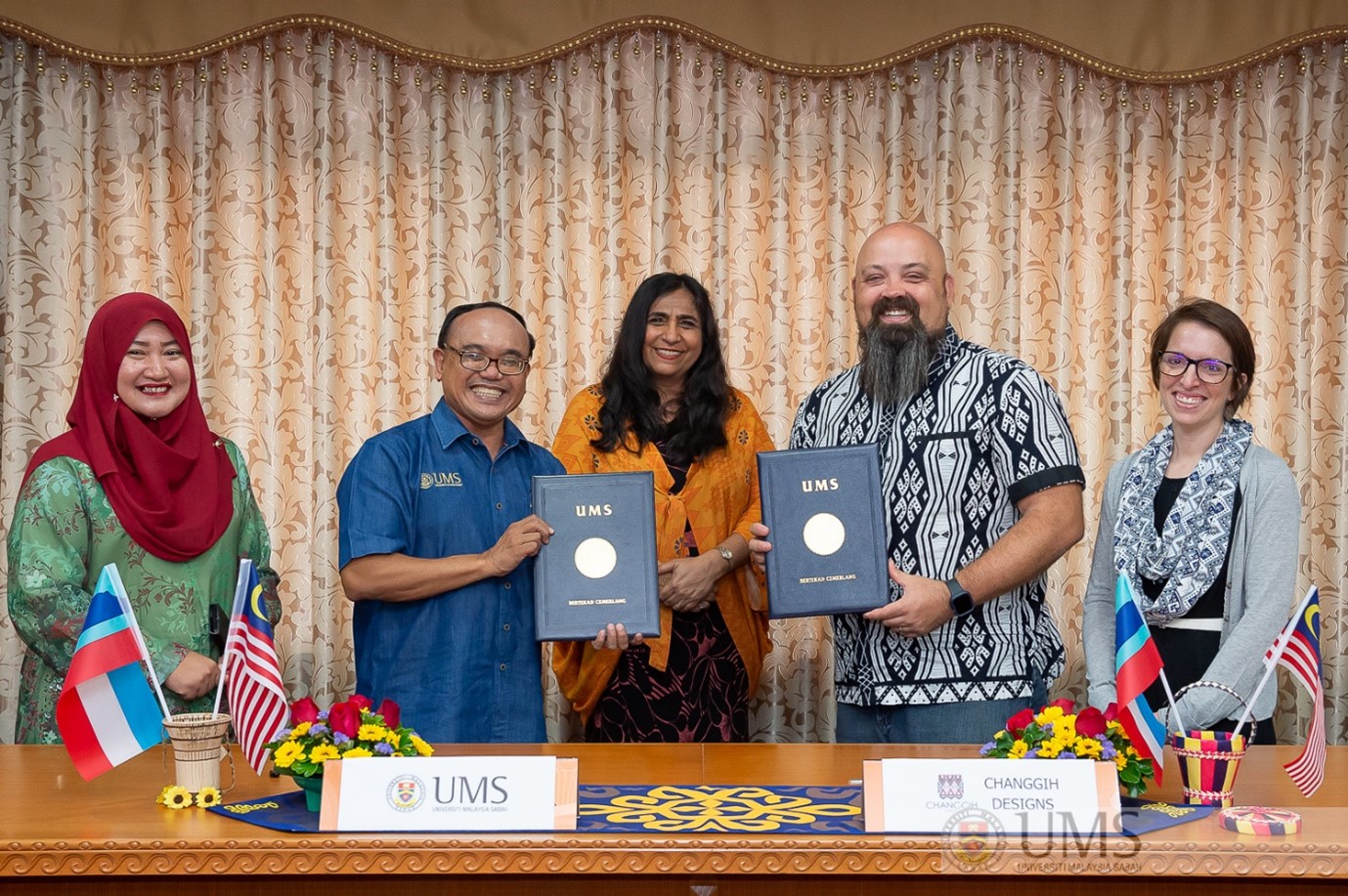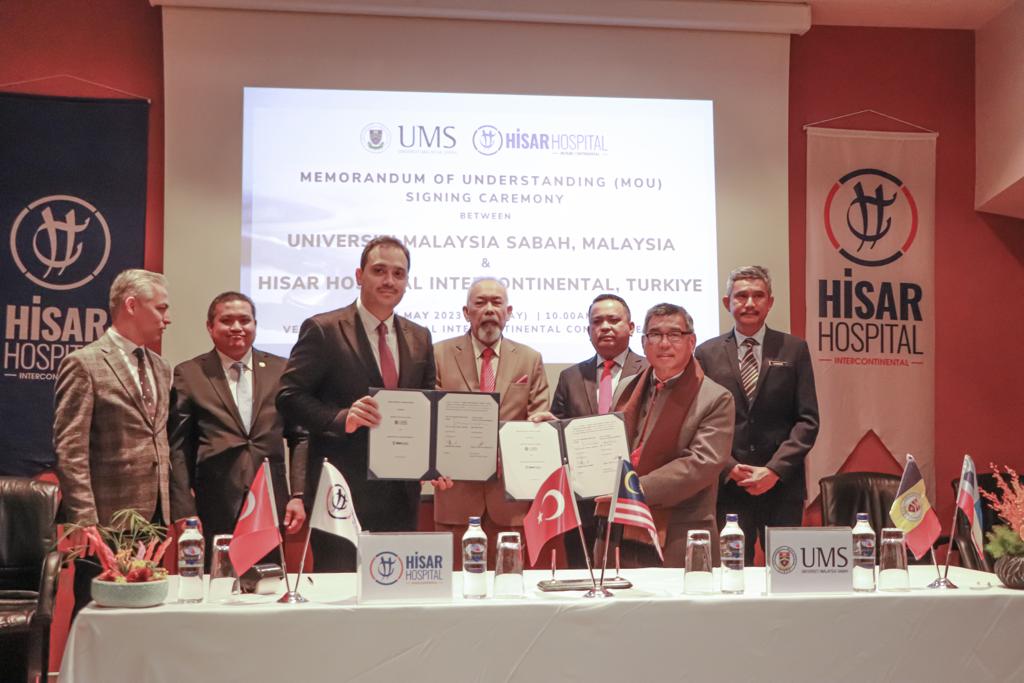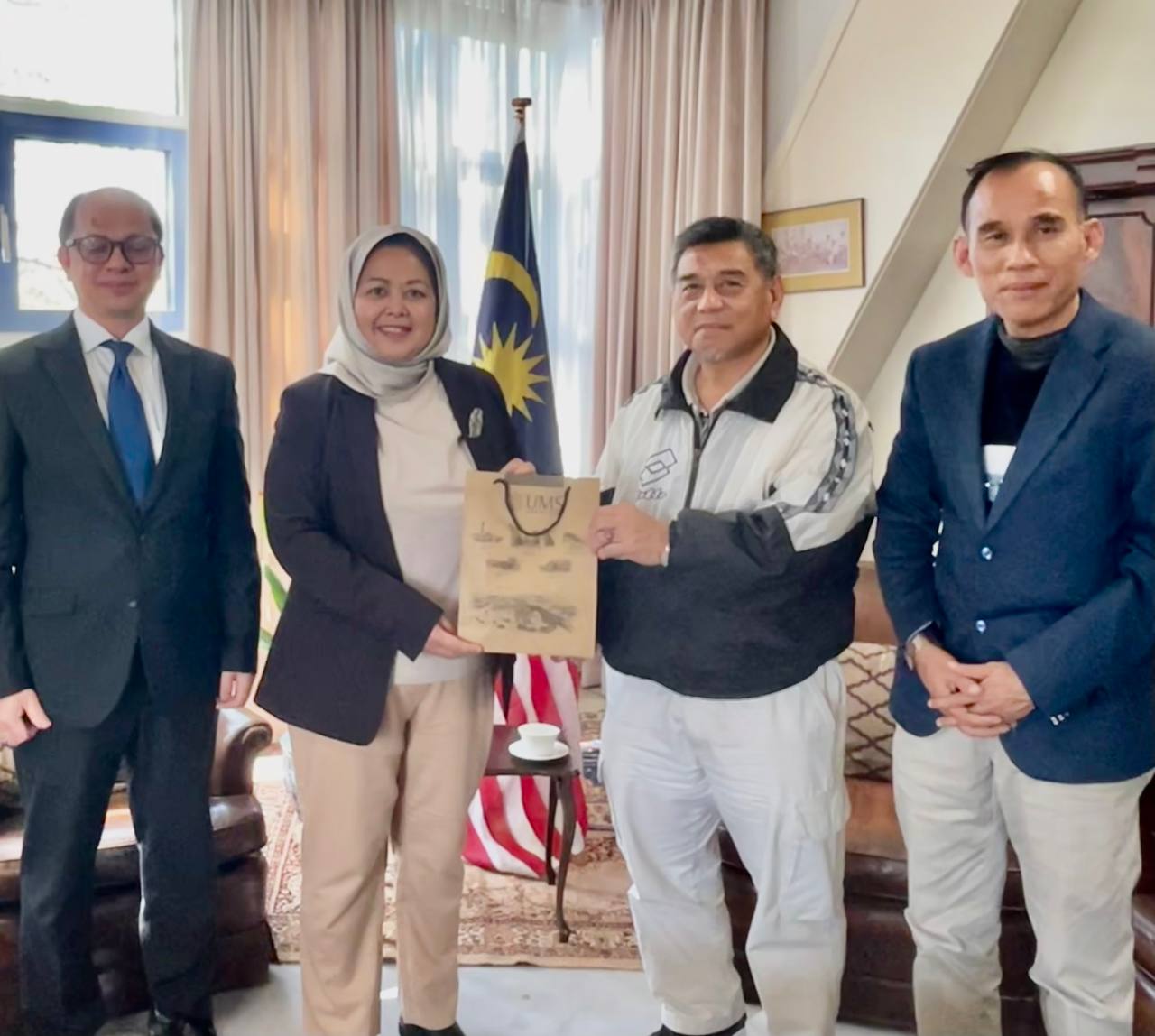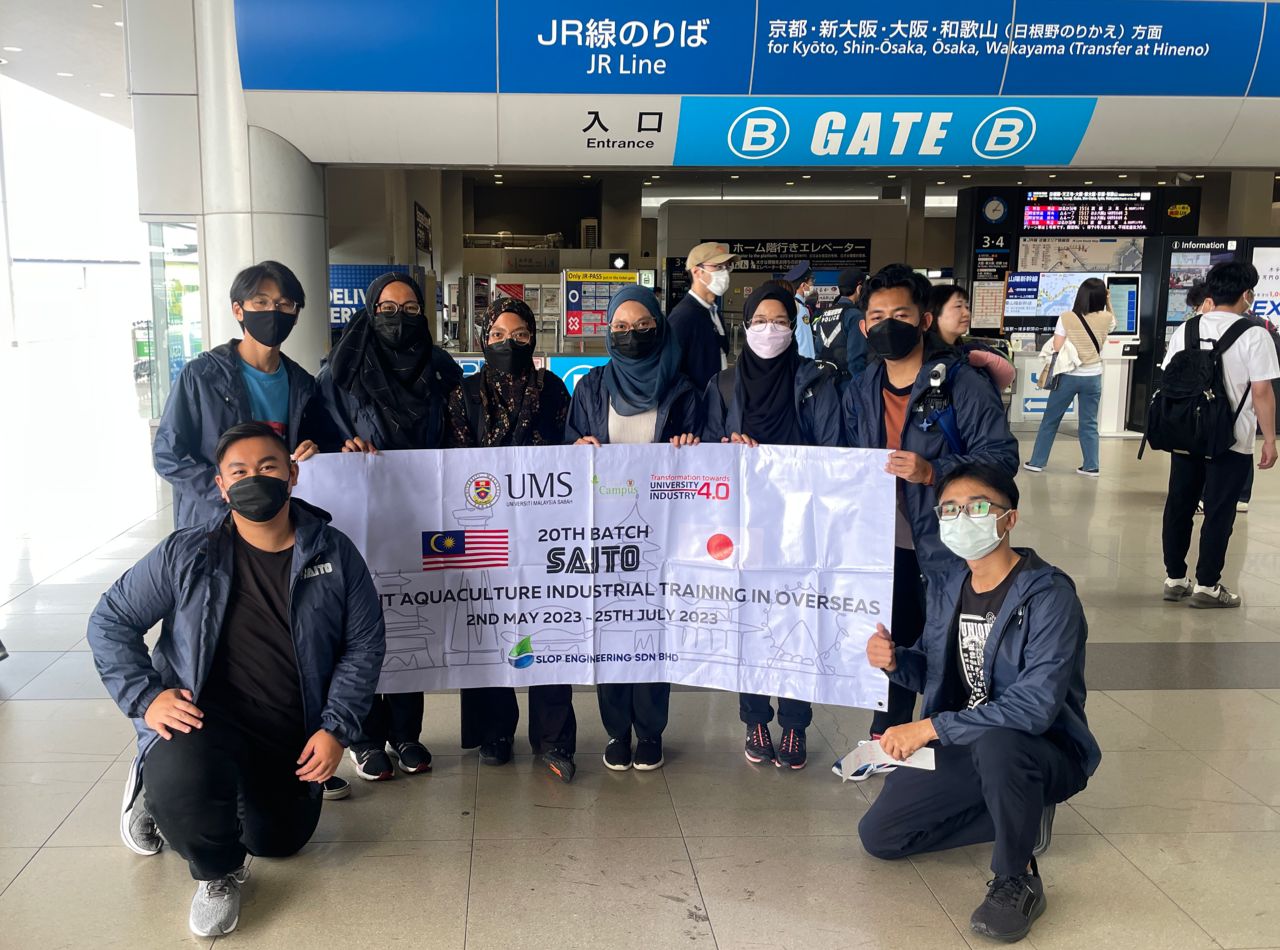 Universiti Malaysia Sabah has signed a Letter of Intent (LoI) with Changgih Designs, a Sabah-based social enterprise.
Universiti Malaysia Sabah has signed a Letter of Intent (LoI) with Changgih Designs, a Sabah-based social enterprise.
The Dean of the Faculty of Business, Economics and Accountancy (FBEA), Assoc. Prof. Dr. Mohd. Rahimie Abd. Karim signed on behalf of UMS, and Director; Allen Dawson signed on behalf of Changgih Designs.
The signing ceremony was witnessed by the co-founder of Changgih Designs, Bethany Dawson, Director of Borneo Tourism Research Centre (BTRC) UMS, Dr. Balvinder K. Kler, and Director, Institute for Tropical Biology and Conservation UMS, Assoc. Prof. Dr. Fiffy Hasnidah Saikim.
Dr. Mohd. Rahimie was pleased to note that various collaborations between the two parties have continued since June last year, including training sessions for the artisans.
He said such collaborations fit well into the newly coined UMS slogan, “Leading Towards Innovative Societies.”
“UMS was pleased to be associated with a social enterprise that advances women to support their families and develop them as leaders in their community.
“As the anchor university in Sabah, UMS aims not only to produce graduates but has a responsibility to provide guidance and innovative solutions which uplift local communities.
“FBEA was one of the early faculties established from the onset in 1995 and offers a range of programs including accountancy, entrepreneurship, economic planning and development, finance and banking, monetary economics, hospitality management, international business, marketing, labour economics, and tourism management.
“Academic staff not only teach but also conduct research which aims to contribute to wider goals for nation building,” he said while delivering his speech at the event.
Meanwhile, Dr. Balvinder, in her welcome remarks, shared the story of how she discovered Changgih Designs in June 2020 during the lockdowns in her search for apparel that could uplift the senses.
“I came across their website selling bright, colorful, reusable face masks, overthrows, and infinity scarves with Sabah-based motifs – and purchased a few items online, including a bright orange overthrow.
“In April 2022, I met Bethany for the first time and was fascinated by the story of this social enterprise which supports women artisans who sew and one of the key activities of tourists on holiday – shopping for souvenirs,” she said.
Having grown up in a house with a Singer sewing machine and a mother who sewed, Balvinder was moved to offer assistance.
“In line with BTRC’s vision to ensure destination communities benefit from tourism knowledge, plans were put into motion culminating with today’s signing ceremony.
“A 3-minute video montage documenting the various activities also play during this ceremony,” she added.
Changgih Director, Allen, thanked UMS and said he looked forward to this collaboration.
Bethany shared that their team and the growing success of Changgih could not have been possible without the loyal support of their staff and artisans, who are like family.
She also thanked BTRC for their support which provided much-needed motivation to carry on post-pandemic. The Dawsons are an American couple based in Sabah.
Through this LoI, the multidisciplinary team of lecturers at the faculty will collaborate to provide business knowledge transfer and advice on social entrepreneurship, as well as engagement through seminars and training for the artisans. UMS students will have the opportunity for internships.
For the records, Changgih Designs was co-founded by Bethany and a friend in 2015. It has grown into a reputable social enterprise in Sabah with over 30 artisans and five full-time staff.
Their culturally inspired collections of handbags, wallets, accessories, scarves, and clothing are made by local artisans.
Besides the local market, Changgih Designs targets its products as souvenirs for tourists visiting Sabah, Malaysian Borneo.
Also present during the LoI signing ceremony were the management officers of FBEA and several members of the Changgih Design team.



 University Malaysia Sabah (UMS) is collaborating with the Engineering Department of Cambridge University, London in the field of material engineering and nanomaterials.
University Malaysia Sabah (UMS) is collaborating with the Engineering Department of Cambridge University, London in the field of material engineering and nanomaterials.
 THE HAGUE, NETHERLAND - A delegation from Universiti Malaysia Sabah (UMS) led by the Vice Chancellor, Professor Datuk Dr. Kasim Hj. Mansor held bilateral talks with the Malaysian Ambassador to the Netherlands, PYT Datuk Nadzirah Osman, at the Malaysian Embassy in The Hague, recently.
THE HAGUE, NETHERLAND - A delegation from Universiti Malaysia Sabah (UMS) led by the Vice Chancellor, Professor Datuk Dr. Kasim Hj. Mansor held bilateral talks with the Malaysian Ambassador to the Netherlands, PYT Datuk Nadzirah Osman, at the Malaysian Embassy in The Hague, recently. Borneo Marine Research Institute (BMRI) and Faculty of Science and Natural Resources (FSSA) of Universiti Malaysia Sabah (UMS) have dispatched a group of eight students of the final year Aquaculture Degree Program to Japan for industrial training in aquaculture.
Borneo Marine Research Institute (BMRI) and Faculty of Science and Natural Resources (FSSA) of Universiti Malaysia Sabah (UMS) have dispatched a group of eight students of the final year Aquaculture Degree Program to Japan for industrial training in aquaculture.